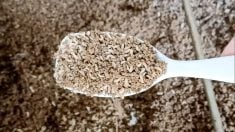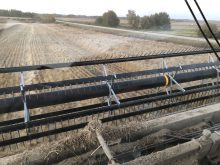It would be fair to describe the tone of farmers at this year’s Ag Days as ‘cautiously optimistic.’
Crop prices are down — but not out. And input prices are a mixed bag, according to analysts speaking at the event. They’re expecting urea prices to stay strong over the winter and into spring, but ammonia prices could decline as more supply comes onstream.
The first month of 2024 hasn’t quite passed yet, but there’s already a certain emerging ‘tone.’
Read Also

Agriculture, including the pork sector, has monsters to slay in 2026
Tariffs, trade protectionism and disruption; Uncertainty is weighing against what should be positive signals for Manitoba’s pork sector.
It seems like it might be one of those ‘missing years’ that’s largely unremarkable and signified by grinding along and making little progress and few breakthroughs, both on the farm and in society at large.
Consider the economy, based on the latest numbers. Turns out inflation is remaining stubborn, but somewhat blunted. The most recent numbers show that it’s rebounded to 3.4 per cent in December, up from 3.1 per cent in November. The Bank of Canada’s inflation target is between one and two per cent, for reference.
That’s bad news for anyone with a variable-rate loan hoping for interest rate relief, but it’s also a far cry from the double-digit inflation that decimated every sector of the Canadian economy in the 1970s and 80s.
And speaking of interest rates, while the news for those who suddenly find themselves cash-poor isn’t good, it could be a heck of a lot worse.
A mortgage on a five-year term will run you somewhere between 5.5 and seven per cent right now, with local credit unions at the lower end of that range, and the major banks at the upper end.
To someone who bought a house or land a few years ago that’s used to paying two per cent or less, that probably feels like a pretty harsh jump. But historically, those are still relatively reasonable rates.
Those of us who’ve been around a few years have all weathered higher rates. When I bought my first house about 20 years ago, I’d locked in a rate of 5.25 per cent for five years. The lawyer I’d hired to do the paperwork on the transaction darn near high-fived me because he thought I’d gotten a great deal. In the previous decade, I had paid as much as 13 per cent interest on a student loan. The generation before me endured even higher rates on the farm in the early 1980s, and that caused significant pain throughout the sector, including a wave of farm bankruptcies.
But today, it’s more low-key. It’s biting enough to hurt, but at least so far, most folks seem to be dealing with it.
Overall, as one colleague put it to me recently, it feels like one of those nothing years both on the farm and in town. Not a disaster, but also not really a roaring success. We’re not in a recession — or at least not much of one. Most folks still have jobs, and unemployment remains reasonably low, but people are still struggling to pay their bills and plenty feel like they’re in a full-fledged sharp economic downturn.
An optimist might look at that and say it’s a Goldilocks kind of a situation — not too hot, nor too cold. But a pessimist would look at it and say things are lukewarm, at best.
However, Ag Days attendees also heard that a blah year might be just the thing, because the alternative may be a little too exciting.
The controversial yet respected conservative author and commentator David Frum took the stage Tuesday afternoon to talk about the geopolitical risks farmers (and everyone else) are currently facing.
His blunt assessment is that the globe’s largest source of risk in the next twelve months is directly to our south, in the good old U.S.A.
“If Americans make the wrong decisions in the next months, the result could be ‘chaos’ within the world order,” he said.
They’ve got an election looming, the January 6 Capitol riot anniversary is a stark reminder that political violence is now firmly part of their national DNA, and the result is a vacuum at the top of the heap internationally.
The further result of that lack of leadership is the unravelling of rules-based trade, local wars like the Russia-Ukraine conflict, the localized skullduggery of the Chinese government, and threats to the existence of Israel.
In a nutshell, the U.S. political system has eschewed its traditional role (and responsibility) as guardian of the post-war global system, he said.
It’s unfortunate because we have, relatively speaking, enjoyed a long period of global peace and prosperity that could be coming to an end.
We should all hope that our American cousins can, once again, do what they’ve so successfully done in the past — reinvent themselves and their national identity, and find a new consensus to coalesce around. Right now the world sorely needs reinvigorated leadership, and looking around the global stage, I’ll still take our closest friends and allies over the alternative.
So here’s hoping for a boring year.
















